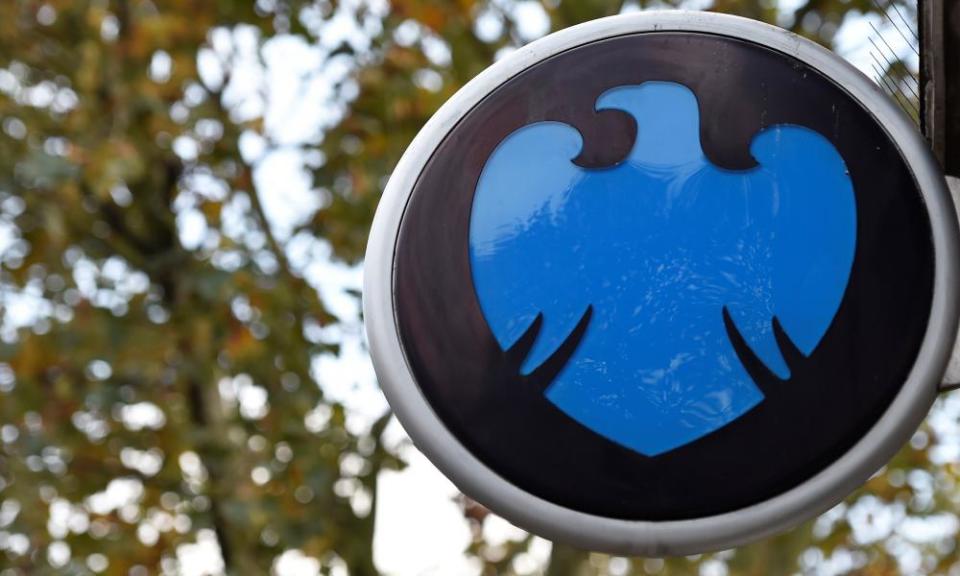Barclays sets aside extra £700m for PPI claims

Barclays has set aside an extra £700m for the payment protection insurance mis-selling scandal and revealed it has taken a loss on the sale of part of its African business.
The bank reported profits for the first six months of the year of £2.3bn, up 13%, but the accounting treatment of the sale of its African arm resulted in a £1.2bn loss for shareholders.
Even so, Jes Staley, the bank’s embattled chief executive, said the restructuring he had embarked upon since taking the helm in December 2015 was now complete.
“Our business is now radically simplified, the restructuring is complete, our capital ratio is within our ... target range, and while we are also working to put conduct issues behind us, we can now focus on what matters most to our shareholders: improving group returns,” said Staley.
The bank’s legal disclosures outline the investigation under way into Staley’s efforts to unmask a whistleblower and the fraud charges the bank’s holding company faces in relation to the way it raised billions of pounds from Qatar in 2008. Running to more than 10 pages, the bank repeats legal claims it faces for a range of issues including a competition investigation in Portugal to terrorist financing investigations in the US. The bank is fighting accusations by the US Department of Justice – made in December – over a decade-old mortgage bond mis-selling scandal.
With regards to the whistleblowing investigation, the bank said it and Staley “are cooperating fully” with the Financial Conduct Authority and the Prudential Regulation Authority. “Barclays is also providing information to, and cooperating with, authorities in the United States with respect to these matters,” the bank said.
Staley did not elaborate on the investigation but said he had the support of the board and pointed to the bank’s strong results.
The additional provision for PPI mis-selling takes Barclays’ total bill to £9.1bn and follows the move by Lloyds Banking Group on Thursday to increase its PPI provisions, taking its total to £18.1bn.
In pulling back from Africa, Staley broke away from his predecessors who had regarded the operation as a key area for growth. The retreat has been performed at a loss – which was caused by a £1.4bn deficit on the sale of the 33% stake and a £1.1bn impairment charge on the sale.
But his aim is to free up capital and eventually step up dividends to shareholders after cutting payouts when he joined. The dividend is 1p a share for the first half and the bank will set out a new dividend plan with the full year results in February.
The bank’s shares were down nearly 1% at 206.7p by lunchtime – below the 233p level at which Staley bought shares in November 2015 before taking the helm.
The bank has a large credit card business, Barclaycard, part of the consumer credit market that is being scrutinised by the Bank of England, which this week warned of a “spiral of complacency” about mounting consumer debt.
Staley said impairments were not a concern but noted that debt was increasing at a time when consumer confidence was falling which could be cause for concern. However, he added: “We have a very conservative approach to credit ... We are not pulling back from extending credit to the UK.” He also said the bank had signed a co-branded credit card deal with Uber.
Overall profits at the corporate and investment banking arm were up 7%, but in the division’s bond trading operation profits fell 20% at time when rivals are also experiencing a slowdown.
The bank is undergoing a restructuring to comply with new rules that require banks to ringfence their high street operations from the investment banking operations – known as the Vickers rules – by 2019. It is also making changes to cope with Brexit and is expanding in Dublin.
Staley said businesses in the UK would need to start their Brexit contingency planning and said the government was reaching out to the business community as negotiations begin. There was going to be a “degree of uncertainty for the next couple of years”, he said.
Barclays’ 13% rise in profits was in part generated by a £615m gain from the sale of its stake in Visa, and the completion of the restructuring prompted Staley to set a new target to achieve a return on equity – a measure of performance for shareholders – of greater than 10%.
Analysts at Shore Capital said the results “are worse than expected due to weaker than anticipated income performance and a further material PPI” charge.